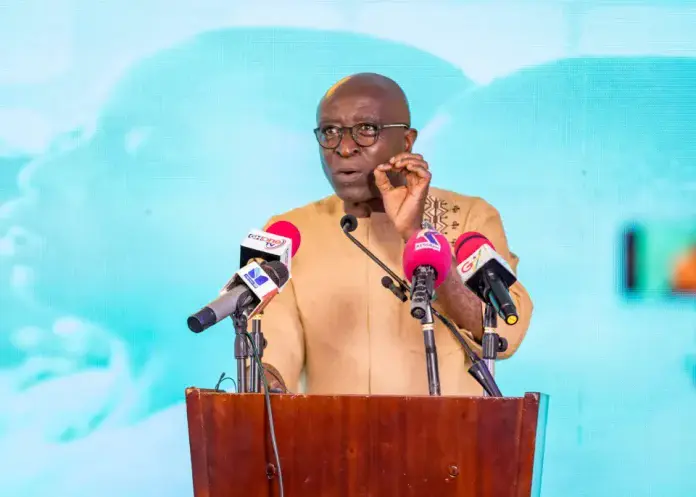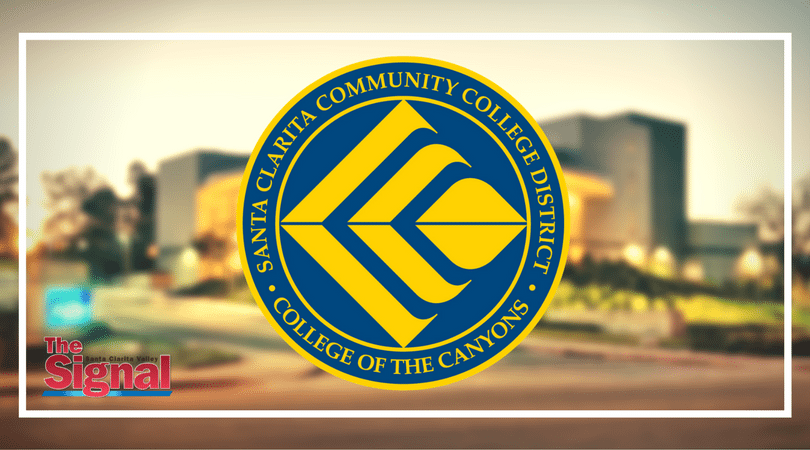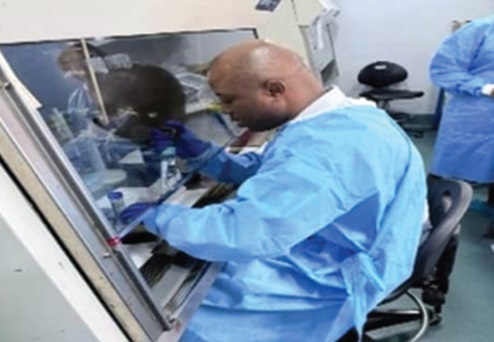Copyright ghananewss

Africa must fundamentally rethink how education is conceived, delivered, and evaluated across the continent, treating the persistent learning crisis as both a moral failure and global social injustice, Professor Kwame Akyeampong said Wednesday. The distinguished Ghanaian educationist made the observation during the launch of his latest book, coauthored with Dr. Sean Higgins, titled “Reconceptualizing the Learning Crisis in Africa: Multi dimensional Pedagogies of Accelerated Learning Programs,” at the Kempinski Hotel Gold Coast City in Accra on October 22, 2025. Professor Akyeampong, who serves as Professor of International Education and Development and Founding Director of the Centre for the Study of Global Development at the Open University in the United Kingdom, said the book aims to provoke deep reflection on making African education more inclusive, relevant, and transformative. He identified the learning crisis as a broken promise of quality education for all, a problem persisting despite global commitments dating back to the Jomtien Conference and the Millennium Development Goals (MDGs). The professor noted that targets set for 2015 and 2030 appear unlikely to be met, with Africa remaining the only region globally where the number of out of school children continues to grow while declining elsewhere. “The crisis is simple: millions of children are out of school, and many who are in school are not learning,” he said, describing this dual challenge as a moral crisis and failure to deliver on the universal right to quality education. Challenging deficit thinking The professor challenged prevailing narratives that blame teachers, children, or communities for educational underperformance, arguing such views distort interventions. He warned that African children are too often depicted as lacking or inferior to a global northern ideal, a “deficit framing” that erases their agency and cultural identity while giving agency to outside organizations rather than local communities. Language barrier undermining learning Akyeampong identified the language barrier as a major contributor to poor learning outcomes, criticizing the practice of teaching children in languages they do not speak at home. He noted that research clearly shows early grade instruction in mother tongues increases comprehension, participation, and self worth. The professor lamented that Ghanaian children were once taught in their local languages, as seen in textbooks produced by Basel missionaries over 150 years ago, but this heritage has been abandoned, alienating today’s learners. During the launch, Professor Akyeampong also criticized the growing trend of giving teachers ready made materials to implement without modification, a practice he said undermines their professionalism. He emphasized that teachers are treated as obstacles rather than agents of learning, doing great disservice to African education, when they actually bring wisdom and cultural insight to classrooms. Celebrating homegrown solutions Drawing lessons from Ghana’s Complementary Basic Education (CBE) and School for Life programmes, which have helped thousands of children acquire literacy within months, Akyeampong lamented Africa’s failure to celebrate its own success stories. He advocated for Afrocentric pedagogical values rooted in Ubuntu, the African philosophy of shared humanity, calling for communities to reclaim their collective role in ensuring every child’s progress. The professor called for transforming African education systems to center care, compassion, and collectiveness alongside cognitive and emotional development. He insisted the science of literacy and learning is well understood, and urged governments to ensure no child completes Grade 3 without reading and writing abilities. The book, published by Routledge, draws on decades of research, fieldwork, and case studies from Ghana, Ethiopia, and Liberia. The launch event was supported by organizations including T-TEL Ghana, Luminos Fund, Jacobs Foundation, IDP Foundation, Yidan Prize Foundation, and mc2h Foundation. Wedad Sayibu, Director of School for Life, commended the work during the launch, describing it as bold and thought provoking. She questioned the dominant Western inspired framing of Africa’s education crisis and highlighted how community knowledge, languages, and cultural strengths shape education more effectively than top down approaches.



